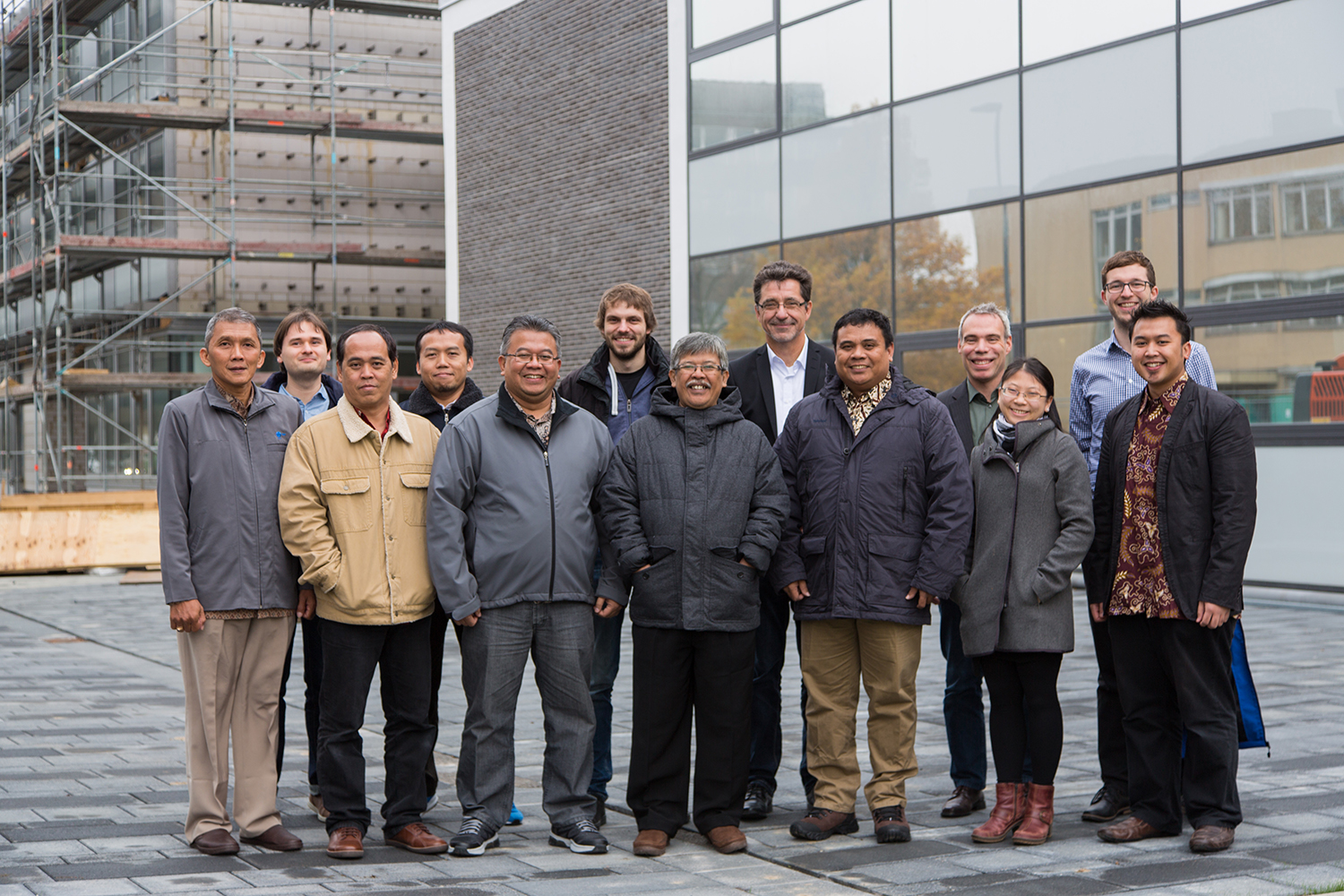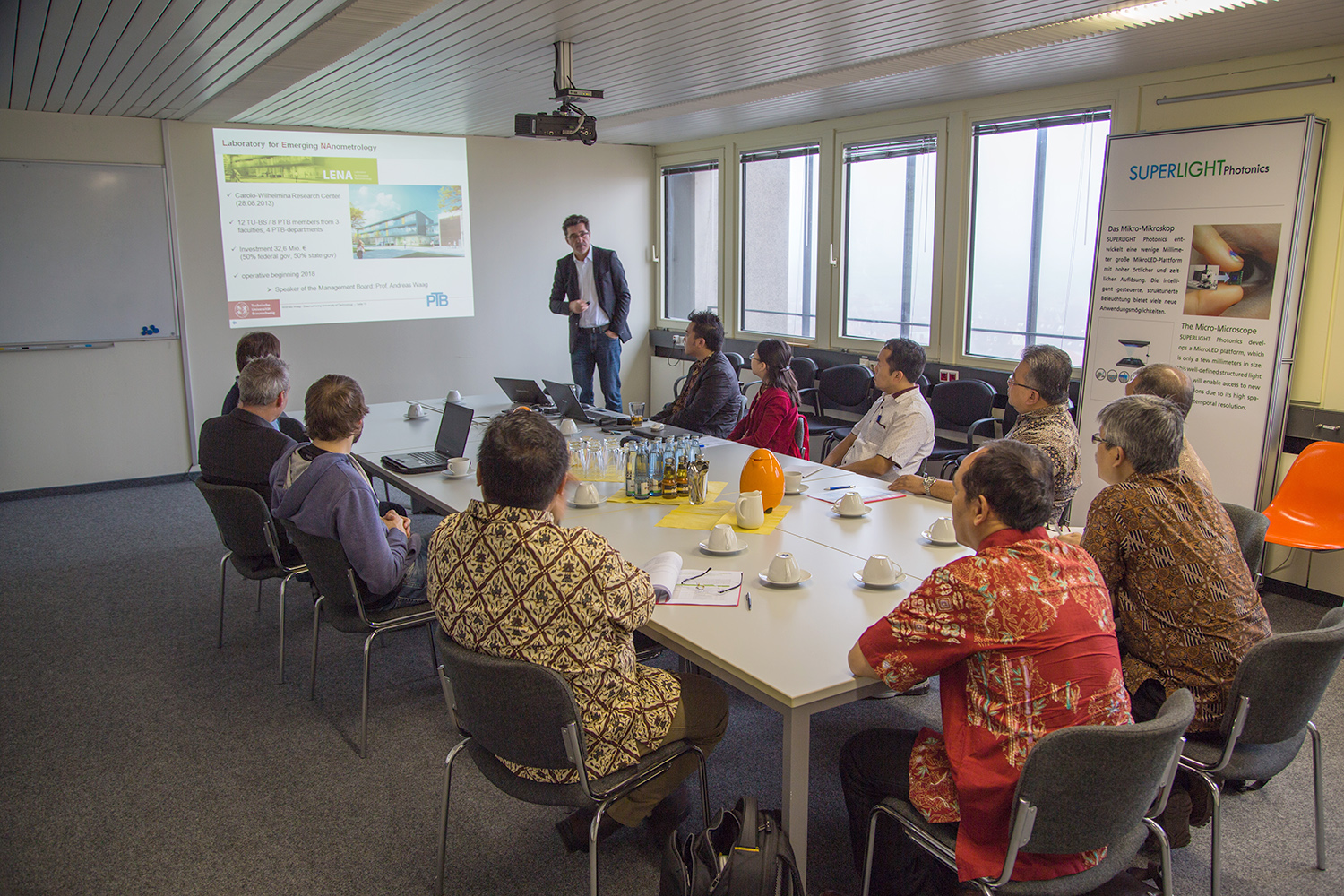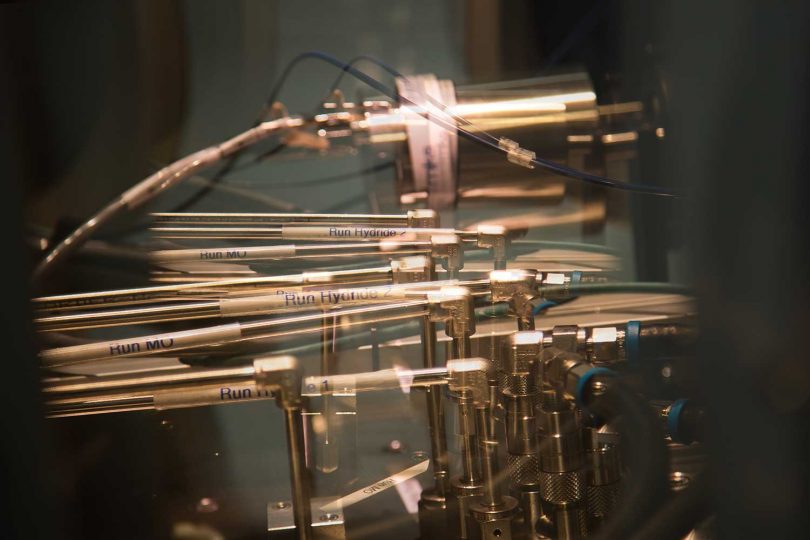Indonesian scientists visiting LENA Focus on Research: At the Limit of Measurability
Lightweight and versatile nanosensors and the fundamentals of their research and development are the focus of an intensive course of the Indonesian-German Center for Nano and Quantum Technologies (IG-Nano) in Braunschweig. Scientists from the Indonesian Institute of Science (LIPI) are visiting the Laboratory for Emerging Nanometrology (LENA) until the end of the month.
Environmental monitoring for the pocket or medical diagnostics for the smartphone is cost-effective and usable everywhere. Advances in nano and quantum technologies could make this possible. Therefore, there are not only scientists like Dr. Hutomo Suryo Wasisto at the Carolo-Wilhelmina, but also researchers in his home country Indonesia who do research and work in these fields. Five of them are now spending three weeks in Braunschweig and completing an intensive course program.
Bridge between Jakarta and Braunschweig
The visit of the Indonesian scientists is not a coincidence: in 2016, the TU Braunschweig with its LENA Research Center became the core partner of the LIPI. Both institutions have founded the “Indonesian-German Center for Nano and Quantum Technologies” (IG-Nano) and in the meantime allowed nine PhD students to spend a research stay in the LENA environment within the framework of the “OptoSense PhD Program”. With this conducted intensive course, the initiative is now opening another further chapter of cooperation.

I Dewa Putu Hermida, Gregor Scholz, Dadin Mahmudin, Iqbal Syamsu, Dr. Goib Wiranto, Klaas Strempel, Dr. Gandi Sugandi, Prof. Dr. Andreas Waag, Dr. Robeth Viktoria Manurung, Dr. Thorben Dammeyer, Shinta Mariana, Jan Gülink and Dr. Hutomo Suryo Wasisto. Picture credits: TU Braunschweig/Jonas Vogel
Nanosensors are the main focus
The development of nanoscale sensor systems, which on the one hand can make measurable things measurable and on the other hand can be produced so easily and in large numbers that they can be used ubiquitously – everywhere and by anyone – is one of the three strategic research lines at LENA. These nanosensors could, for example, be used for biomedical and environmental monitoring applications, which are not only for the determination of air composition or particulate matter exposure, but also for nanoanalytics in biotechnology.
Insight into the development, outlook for cooperation

LENA spokesperson Prof. Andreas Waag welcomes the visiting scientists in Braunschweig. Picture credits: TU Braunschweig/Jonas Vogel
The guests from Indonesia are not only provided an overview of the development of novel fabrication and characterization methods for nanosensors. In this case, the future scientific collaborations will also be prepared and further developed. “After only a few days, it becomes obvious that our expertise in Braunschweig and the needs of my home country can be very well linked,” explains Dr. Wasisto. “Even cost-effective nanosensors, for example the ones that are developed for medical point-of-care diagnosis, are very interesting and relevant for a developing country like Indonesia.”
Expert platform planned by LENA and LIPI
The partners of the “IG-Nano” initiative have already planned the next step: A new expert platform will be established with experts from LENA and LIPI in order to make nanoanalytical methods to both sides accessible. “Indonesia is just extending its ‘sensors’ and it is now a very good time to advance strategic scientific collaboration,” said LENA Board Spokesman Prof. Dr. Andreas Waag and adds: “For LENA this is a further step towards internationalization and the promotion of worldwide visibility.”

